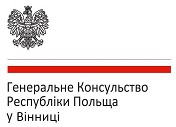Суспільно-політичні умови запровадження магдебурзького права в містах (Волині ХV–60-ті рр. ХVІ ст.)
Ключові слова:
Volyn land, the Grand Duchy of Lithuania, Polish kingdom, city, the Magdeburg lawАнотація
In the 15th–16 th. centuries most of the cities and towns of Ukrainian lands, which were part of the Grand Duchy of Lithuania, were concentrated in Volyn land, where the geographical factor was quite favorable for social development. The cities, along with the castles, remained strategic frontiers of the military organization of the state, outpost of protection against external aggression, which required constant attention from the state. The spreading process of the craft separation from agriculture caused the need for sales markets and increased the demand for agricultural products. Due to the auspices policy there was a process of specialization of production, the changes took place in the structure of the of the population work, a shop handicraft and craft were developed , the number of urban population in general and the township in particular increased.
The Magdeburg law was acrued to Volyn cities from Germany via Poland and Lithuania, when appropriate socio- economic and political conditions similar to those of Western Europe were created for this purpose. The transition of the cities’ administration to the Magdeburg law was a reflection of the process of the establishment of Slavic law in the West European lands in general, since it was being modified, in particular under the influence of German law. The introduction of the Magdeburg law in Volyn cities was expanded considering the national traditions of customary law; however, it was an original process that took place with considerable delay compared to the cities of Western Europe. The fate of Volyn cities in the context of their incorporation into the political-legal system of GDL was also determined by geostrategic and political factors that were in progress during 14th and 15th centuries – struggle for Volyn and Podillya between Lithuania and the Kingdom of Poland.
The Magdeburg law became not only a means of modernizing of the public relations, but also the instrument of political influence of the Polish Crown, aimed at incorporating the Volyn and the Grand Duchy of Lithuania in general, into Poland. In this context, the socio-political conditions for granting Lutsk land a privilege on the Magdeburg law by the Polish King Władysław Jagailo on October 30, 1432 are indicative. The privilege of 1432 was unique among such acts, since it provided German law not to the city or to the burghers, but to all residents of Lutsk land. Apparently, this format had, above all, an important political significance – an attempt to attract Lutsk land to the Polish kingdom as closely as possible, its own economic component had been secondary, since in the privilege there were no specific indications as to the order of the organization of trades and fairs, the scope of the powers of Vogt, etc., which was obligatory component part of similar acts. The structure and functions of the local self-government bodies depended upon many factors, including statute of the cities: state-owned (grand-prince) or private-owned, privileged, or not, with full and incomplete Magdeburg law.
##submission.downloads##
Опубліковано
Номер
Розділ
Ліцензія
Авторське право (c) 2017 Алла Бортнікова

Ця робота ліцензується відповідно до Creative Commons Attribution-NonCommercial 4.0 International License.
Автор, який подає матеріали до друку, зберігає за собою всі авторські права та надає відповідному виданню право першої публікації, дозволяючи розповсюджувати даний матеріал із зазначенням авторства та джерела первинної публікації, а також погоджується на розміщення її електронної версії на сайті Національної бібліотеки ім. В.І. Вернадського, в міжнародних базах даних CEJSH, Index Copernicus, POL-index, Polska Bibliografia Naukowa.

